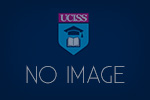
INTRODUCTION
As Malaysia aims to become a fully industrialized nation by 2020, Malaysian businesses and corporate sectors have to provide the impetus and drive for this movement forward. Globalization and K-Economy require Malaysian industries to constantly upgrade their knowledge, competency and skills. This will create an ever-expanding demand for technical and managerial skills and talents.
Universiti Teknikal Malaysia Melaka (UTeM) was strives to provide higher degree education that is of high quality and relevant to the needs of the varied participants of the on the range of programs offered. The ability to respond to participant’s need is facilitated by a program structure, which permits the maximum flexibility consistent with the maintenance of academic requirements and standards and with an emphasis close professional relationships between staff and students within the university. It is part of an academic community, which prides itself on an outstanding reputation for teaching and research. The academic staffs, working at the frontier of their subjects, are often in close collaboration with colleagues from the industries and the Government. In the spirit of supportive fraternity, all students, regardless of creed and background, benefit from the challenges and opportunities presented by such environment.
OBJECTIVES
To produce man-power that are professional and skillful and possess strong fundamental knowledge in computer engineering. Due to the equilibrium of the designed co-curriculum that emphasis both physical skills and personality development, graduates should be able to perform his profesion with high personalities, moral values, ethical and high spiritual qualities. In addition, this program is also designed to produce graduates who own good skills in oral and writing communications.
CURRICULUM STRUCTURE
The Master programme by Taught Course (or coursework) is designed to extend the knowledge and skills gained from the first degree and to develop new professional skills of the graduates in the particular area of study. The programme involves lectures, seminars and project work. A minimum of 40 credit hours of taught subjects and a research report and a final Cumulative Grade Point Average (CGPA) of at least 3.0 are required for the award of the Master degree.
The minimum 40 credits of study comprise a combination of compulsory subjects, electives and a Master’s Project. Assessments are made through take home assignments, tests and final semester examinations. Students’ progress and performance in the Master project is assessed through oral presentations and a written report.
| SEMESTER 1 | |||
| CODE | MODULE | CATEGORY | CREDIT |
| MPSW 5013 | Research Methodology
|
W | 3 |
| MPSW 5033 | Engineering Management and Technology
|
W | 3 |
| MENC 5013 | Advance Digital Image Processing
|
P | 3 |
| MENE 5013 | Advance Electronic Design
|
P | 3 |
| MENT 5013 | Advance TCP/IP Network
|
P | 3 |
| MENT 5213 | Wave Propagation
|
K | 3 |
| TOTAL | 18 | ||
| SEMESTER 2 | |||
| MENU 5013 | Project I
|
PS | 3 |
| MENT 5223 | Antenna Design
|
K | 3 |
| MENT 5233 | RF and Microwave Circuit Design
|
K | 3 |
| MENT 5513 | Advance Digital Communication
|
E | 3 |
| MENT 5523 | Satellite Communication
|
E | 3 |
| MENT 5533 | Broadband Wireless Communication
|
E | 3 |
| MENT 5543 | Optical Communication
|
E | 3 |
| TOTAL | *15 | ||
| SPECIAL SEMESTER | |||
| MENU 5029 | Project II
|
PS | 9 |
| TOTAL | 9 | ||
| SUM TOTAL | 42 |
Source: Universiti Teknikal Malaysia Melaka (UTEM)